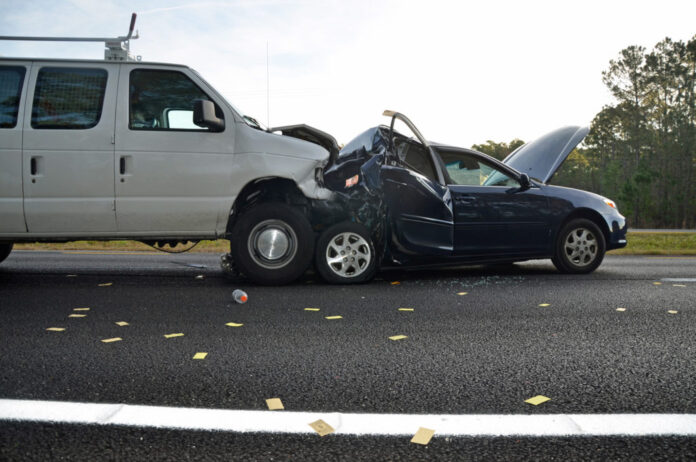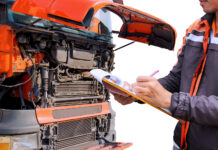A commercial vehicle accident can leave you with debilitating injuries if you’re the victim. You may have a right to compensation if you find yourself in a collision with a commercial vehicle in certain situations.
Car accidents can get complex because the person who actually caused an accident might not necessarily be who’s responsible for paying for your compensation, according to the Mission Legal Center.
Insurance companies will often try their best to pay less when there’s the involvement of a big commercial insurance policy. In 2019, more than 5,000 large trucks were involved in fatal accidents, and another 118,000 were involved in accidents that led to injuries.
Commercial vehicles make up only around 4% of vehicles on the road, but commercial trucks are involved in around 13% of all deadly accidents.
As delivery services grow and become more common and widespread, there’s a real chance that accidents involving commercial vehicles can become more likely.
The following are more specific things to know about being involved in an accident with a commercial vehicle.
What’s Considered a Commercial Vehicle?
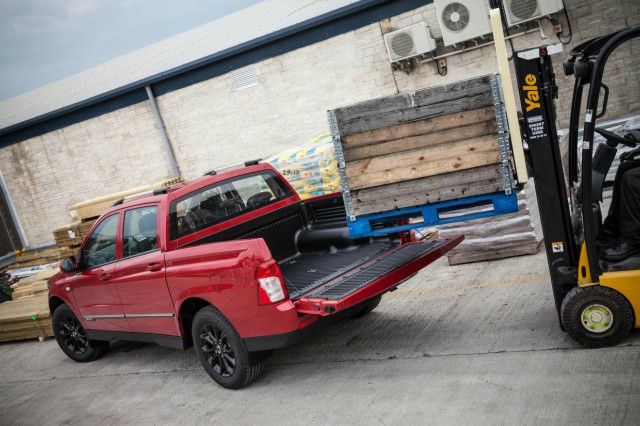
A commercial vehicle is usually considered one being used to move goods or passengers on public roadways. This can include vehicles with a certain weight, vehicles that have seats for transporting more than eight passengers for money, and seats to transport more than 15 passengers, not for money. A vehicle with a bed or trailer for the transportation of hazardous materials is also a commercial vehicle.
Specific examples of commercial vehicles include:
- UPS and FedEx delivery trucks
- Amazon delivery trucks and vehicles
- Dump trucks
- Tow trucks
- Garbage trucks
- Construction vehicles
- Tractor-trailers and semi-trucks
- Cement trucks
- Delivery vans
The Risks of Commercial Vehicles
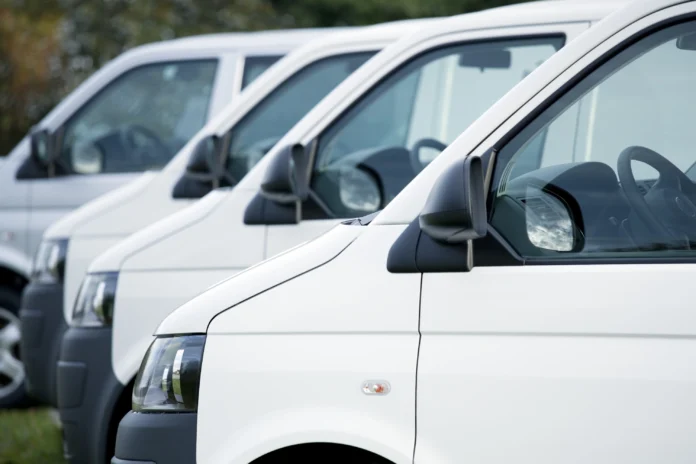
Why are commercial vehicles involved in a disproportionately high number of fatal accidents?
It’s mostly because passenger vehicles are simply more vulnerable on roadways because they’re smaller than commercial vehicles.
A tractor-trailer, for example, can weigh 30 to 40 times more than a passenger car.
A heavier vehicle is going to have more force when it’s traveling at high speeds, such as on a highway.
The braking ability of commercial vehicles is, therefore, a big factor in crashes. A truck needs anywhere from 20 to 40% more distance than a car to stop, so it’s hard for a truck driver to maneuver as quickly and efficiently in an accident.
There are other risks unique to commercial vehicles aside from size. For example, these drivers may be more likely to be drowsy behind the wheel if they’re working long hours.
Causes of Commercial Accidents
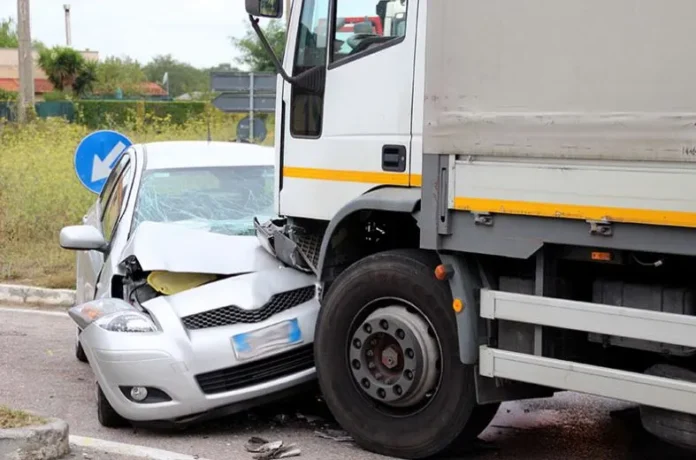
Large commercial vehicles are risky on roadways because of size and potential drowsiness of drivers, but for other reasons too.
There are usually three main events that researchers have found happen in accidents that involve commercial vehicles and large trucks.
The first is running out of the travel lane, either into another loan or even off the road. The second is a loss of control because of factors like poor road conditions, driving too fast, and cargo shift. The third factor in these accidents that commonly occurs is a collision with the rear end of a vehicle in the lane of the truck.
Driver error is the biggest reason for accidents, along with vehicle issues and environmental factors.
Who’s Liable?
There are multiple parties that can be liable in an accident that involves a commercial vehicle.
The driver of the commercial vehicle or their employer could be liable, as can the company that owns or leases the vehicle. Also potentially responsible legally are the person or company that’s in charge of maintaining the vehicle, the manufacturer of the vehicle itself, or a particular part.
If the driver’s direct actions caused the accident, they might be liable. If they were going beyond the hours-of-service regulations, breaking a traffic law, or were intoxicated or distracted while driving, as examples, they might be liable.
The company, the person drives for can be responsible if the driver was acting within the scope of employment when an accident happened. The employer can also be found at fault if it can be proven the company didn’t do necessary inspections or follow safety regulations. The company could be responsible as well if it made the driver go beyond the hours of service set forth in the law.
That is why it is important that every trucking business has a good commercial trucking insurance providers to protect you from out-of-pocket expenses if any of your vehicles are involved in an accident while using your truck to transport items. If you also use your truck professionally and personally, a truck insurance policy will fill in any gaps with your personal auto insurance.
Cargo loaders are the people who are expected to not just generally load but also secure cargo. If this isn’t done the right way, the load can shift, and the truck can become unstable, leading to an accident, so the loaders can be liable.
If the commercial vehicle has a defect that caused an accident, like a break failure or mechanical failure, the manufacturer may be liable.
Since there are so many parties that are potentially involved in commercial trucking, it’s challenging to know exactly who’s responsible. A personal injury attorney can help in this determination.
What to Do Right After An Accident
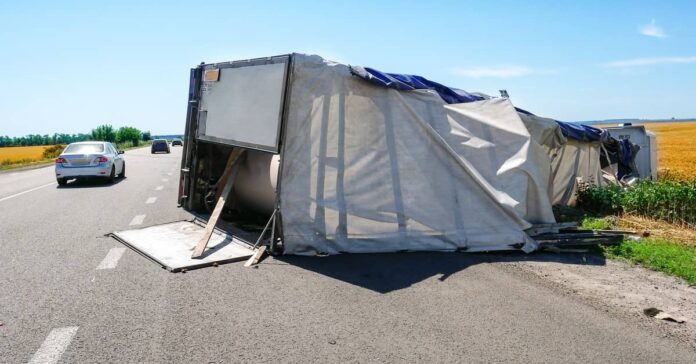
If you’re in an accident with a commercial vehicle, you should stay at the scene. Don’t leave the scene because that’s a hit-and-run. Check on everyone and see if they need medical attention, and then contact the police.
Just like you would with an accident involving another passenger vehicle, you’ll get the contact information, insurance information, and driver’s license numbers of everyone involved. You want to get as much detail about the employer of the commercial driver as you can.
Take pictures of everything, and get medical attention.
You should get in touch with your insurance company and let them know what happened.
Finally, if you’re in an accident with a commercial vehicle, be especially careful about what you say.
Don’t admit fault or apologize for anything. Be polite, but admit no wrongdoing. The determination of who’s at fault will be made by experts—it’s not up to you to determine that, and you might think you’re at fault even if you aren’t.
Commercial vehicle accidents get complicated, and there are a lot of applicable laws and regulations, along with many potentially responsible parties, so you need to talk to a lawyer if you find yourself in this situation.
